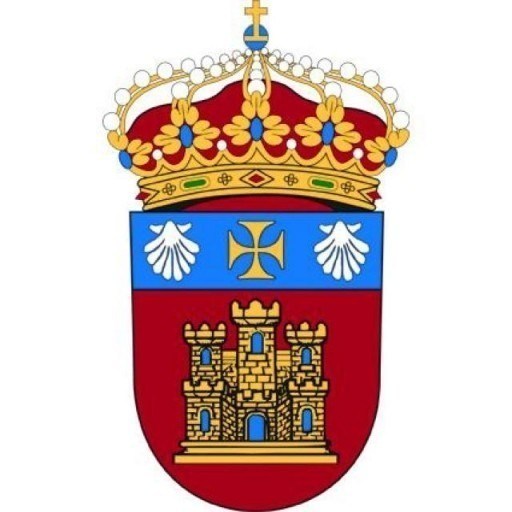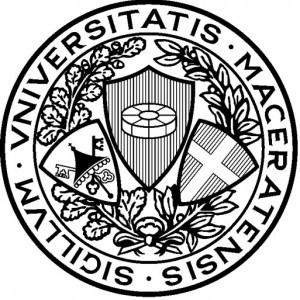Photos of university / #maastrichtuniversity
The Master's program in Arts and Heritage: Policy, Management and Education at Maastricht University offers a comprehensive and multidisciplinary approach to understanding, analyzing, and managing arts and cultural heritage in various societal contexts. This program is designed for students interested in exploring the complex interplay between cultural expressions, policy development, educational strategies, and management practices within the arts and heritage sectors. Throughout the program, students acquire theoretical knowledge and practical skills necessary to develop innovative solutions for preserving, promoting, and managing cultural assets in an increasingly globalized and digital world. The curriculum combines academic rigor with real-world applications, featuring a blend of lectures, case studies, project work, and internships that prepare students for careers in cultural policy-making, museum management, heritage consultancy, arts education, and cultural entrepreneurship. Emphasizing critical thinking, intercultural competence, and strategic planning, the program encourages students to engage with contemporary challenges facing the arts and heritage sectors, including digitization, sustainability, diversity, and community engagement. The program is delivered in close collaboration with cultural institutions, policymakers, and industry experts, providing students with valuable networking opportunities and practical insights. Graduates emerge empowered with the ability to influence cultural policies, lead innovative projects, and contribute meaningfully to the preservation and development of cultural heritage worldwide. With its international orientation and multidisciplinary curriculum, this program prepares students for a versatile and impactful career in arts and heritage management, policy formulation, and arts education at national and international levels.
The Master’s program in Arts and Heritage: Policy, Management and Education at Maastricht University offers a comprehensive and multidisciplinary approach to understanding and managing cultural heritage in its many forms. This program is designed to equip students with the theoretical knowledge, practical skills, and critical thinking necessary to address complex challenges in the arts and heritage sectors, both locally and globally. Throughout the program, students engage with a wide array of topics including the governance of cultural heritage, heritage policies, preservation techniques, cultural programming, and educational strategies related to arts and heritage. The curriculum emphasizes an interdisciplinary perspective, integrating insights from history, arts management, policy analysis, museum studies, and education, allowing students to develop versatile competencies suitable for careers in cultural institutions, government agencies, NGOs, and academia.
Core courses cover essential areas such as heritage law and ethics, cultural policy analysis, conservation principles, and public engagement strategies. Students are encouraged to critically analyze contemporary debates on issues like cultural diversity, digital heritage, and sustainability in the arts. Practical components include internships, project work, and collaborative projects with cultural organizations, providing real-world experience and fostering professional networks. The program also promotes a global outlook, incorporating case studies from different countries and encouraging international cooperation and exchange. Faculty members with extensive expertise in arts management, cultural policy, and heritage education mentor students throughout their studies, offering personalized guidance and industry insights. Upon graduation, students will be well-equipped to design, implement, and evaluate policies and programs that promote cultural heritage and arts education, making a meaningful impact in the cultural sector. This innovative program prepares graduates for leadership roles that contribute to the sustainable preservation and appreciation of arts and heritage worldwide, fostering a lifelong commitment to cultural enrichment and education.
Admission requirements
Language tests, obtained within the last two years, are required for applicants. Native English speakers and students who had English as the language of instruction for their bachelor or master degree are exempted. Applicants need to proof their English proficiency by submitting one of the following language tests: * IELTS score of 7.0 * TOEFL score of 100 (internet-based) or 600 (paper-based) * Cambridge Proficiency Certificate (grade A, B, C); or Cambridge Advanced Certificate (grade A,B+).
Other requirements
- taaltoets cijfer Language tests, obtained within the last two years, are required for applicants. Native English speakers and students who had English as the language of instruction for their bachelor or master degree are exempted. Applicants need to proof their English proficiency by submitting one of the following language tests: * IELTS score of 7.0 * TOEFL score of 100 (internet-based) or 600 (paper-based) * Cambridge Proficiency Certificate (grade A, B, C); or Cambridge Advanced Certificate (grade A,B+).
- gemiddeld cijfer •A grade-point average of a B (US system); 7.0 (Dutch system) or higher
- minimum kennis (ISPAC: overige vereisten) •A basis in the scientific field of sustainable development as attested by having followed at least 15 ECTS credits on courses related to the following topics: sustainable development, sustainability science, development studies, globalization or governance •A basis in scientific research methods as reflected in the completion of at least 15 ECTS on scientific methods
- vooropleiding (ISPAC: vereiste vooropleiding) •A relevant Bachelor degree in Science, Social Science or Humanities
The financing options for the Arts and Heritage: Policy, Management and Education master’s programme at Maastricht University include a variety of scholarships, grants, and loan possibilities to support students financially throughout their studies. Maastricht University offers several scholarship programs aimed at international students, such as the Maastricht University High Potential Scholarship, which provides substantial tuition fee discounts for highly motivated students from non-EU countries. Additionally, the Holland Scholarship is available for students from outside the European Economic Area, offering a contribution towards living costs and tuition fees. Students are encouraged to explore external funding options, including government-sponsored grants, private foundations, and international scholarship programs specific to their country of residence.
University students can also consider student loans available through their home countries or international financial institutions. Maastricht University provides guidance and support for prospective students in understanding the application procedures for these funding options through its Student Service Centre. Furthermore, part-time work opportunities during the academic year are available for international students, allowing them to supplement their financial resources while gaining relevant experience in the arts and heritage management field. Tuition fees vary depending on the student’s nationality and specific scholarship eligibility and are payable annually, with detailed information accessible through the university’s official website. Overall, students are encouraged to apply early for scholarships and explore all available funding opportunities to ensure a smooth and financially manageable educational journey at Maastricht University.
This Master's program in Arts and Heritage: Policy, Management and Education at Maastricht University is specifically designed to prepare students for careers involving the curation, management, and policy-making processes related to arts and heritage. The program offers a comprehensive curriculum that combines theoretical knowledge with practical skills, enabling graduates to effectively contribute to the cultural sector on both national and international levels. Students will explore various facets of cultural heritage, including its preservation, interpretation, and educational utilization. The program emphasizes an interdisciplinary approach, integrating insights from arts management, cultural policy, education, and heritage studies. It encourages critical thinking about the role of arts and heritage in society, addressing contemporary challenges such as globalization, digitization, and cultural diversity. The courses are developed in close collaboration with cultural institutions, providing students with opportunities for internships and practical projects. This facilitates a hands-on understanding of heritage management and policy development in real-world settings. The program also aims to develop skills in leadership, project management, communication, and stakeholder engagement, which are essential for managerial roles in museums, heritage sites, cultural organizations, and policy institutions. Graduates will be well-equipped to pursue roles as cultural policy advisors, heritage managers, education coordinators, or museum professionals. Additionally, the program fosters a reflective approach to cultural heritage, encouraging students to consider ethical, social, and technical issues related to heritage conservation and promotion. Maastricht University’s multicultural environment and proximity to significant cultural sites enhance the learning experience, providing a rich context for fieldwork and research. The program typically takes one year to complete for full-time students, with options for part-time enrollment. Admission requirements generally include a relevant bachelor’s degree and a motivation letter demonstrating interest in arts, heritage, or related fields. Upon successful completion, graduates receive a Master of Arts degree and are prepared to contribute innovatively and responsibly to the management and educational aspects of arts and heritage sectors worldwide.










